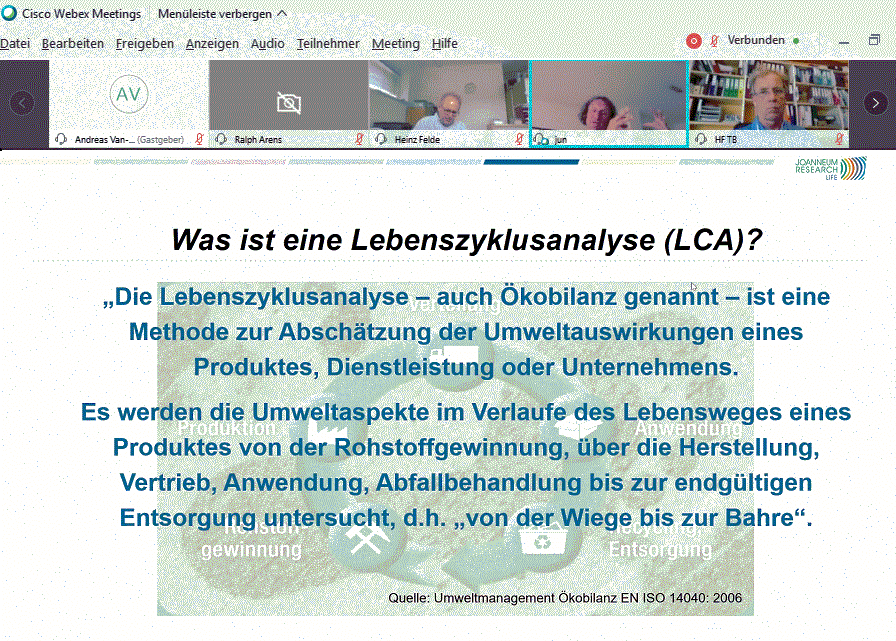
The webinar is part of the Material Efficiency Laboratory project, commissioned by the Federal Ministry for Climate Protection, Environment, Energy, Mobility, Innovation and Technology, and is organized by STENUM GmbH and Resource Forum Austria with ITG Salzburg, the Salzburg Industrial Association, the Salzburg Chamber of Commerce as well as the plastic cluster and cleantech cluster.
Using the example of waste plastic recycling, Prof. Jungmeier of Joanneum Research showed the comparison of waste and waste recycling as well as the evaluation in an LCA. Either electricity and heat or secondary material is obtained through recycling. The method of system analysis helps with comparability. The missing product must be added for material and energy recovery. The most important impact factors here are in energy recovery, among other things. the degrees of utilization of waste incineration, the amount of usable heat in waste incineration and the energy replaced and in material recycling the energy requirement, the product yield, the use of residual materials in recycling and the quality of recycling products.
In the basic case, the difference between material and energy recovery is minor or not significant, according to Jungmeier. This is the case with many existing substances and the evaluation of the favoritism then depends on specific framework conditions.
Dr. Neubauer of the Austrian environmental agency provided an overview of the nationwide treatment plants: 12 plants exist with the main purpose of sorting / processing plastics, another 25 plants operate material plastic recycling (i.e. produce regranulates, semi-finished products or plastic articles), 20 plants process or recycle polystyrene.
Then Neubauer gave an insight into the first findings of a current study on the current status quo of sorting and recycling technologies. The degree of sorting in the four plants examined is between 31 and 38% of separated target fractions of the total input.
The subsequent discussion thematized, among other things, the export of plastic waste, the problem of cost competition between secondary raw materials and currently cheap primary material, and the consideration of bio-based plastics in recycling options that pose major problems or disruptions to the process and are therefore deliberately removed.
More about the material efficiency laboratory at: https://www.ressourceforum.at/materialeffizienzlabor/
Are you interested in material efficiency and practical solutions? Then sign up for our newsletter at https://www.ressourceforum.at!
